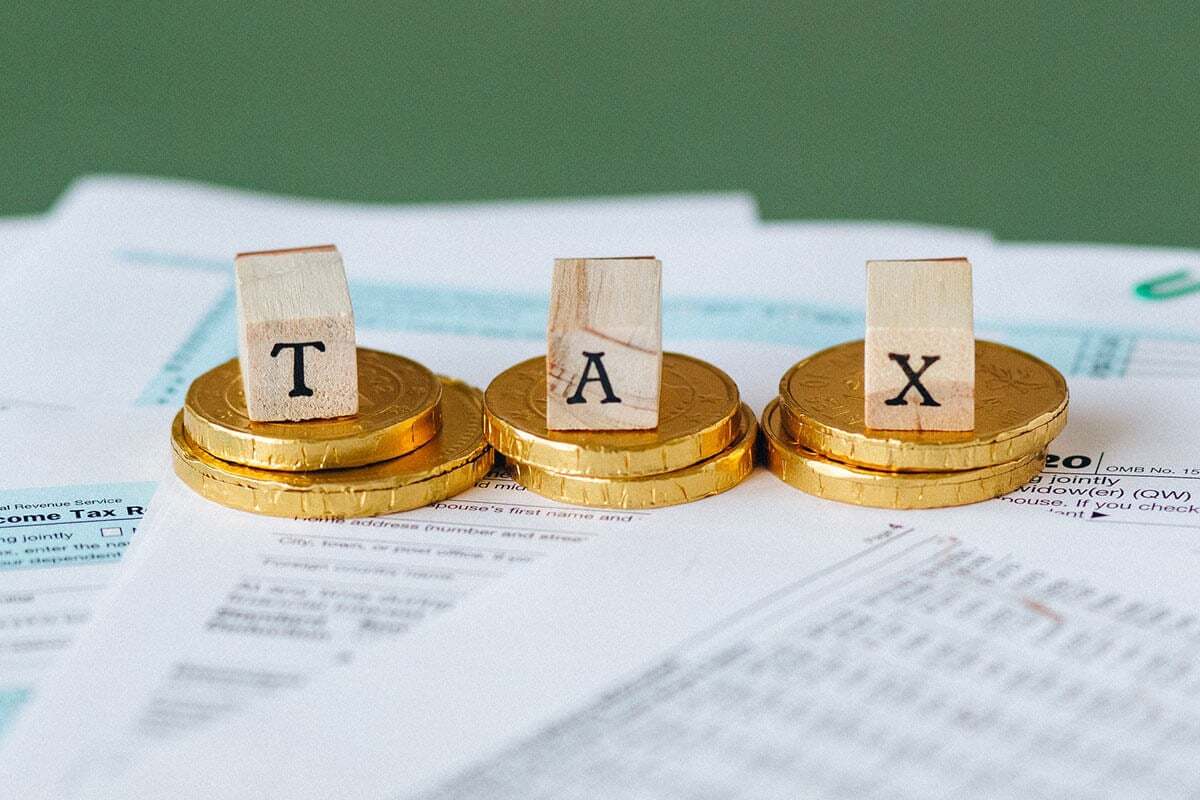One of the most important features of the United Arab Emirates' tax system is that individuals are not charged income tax. The United Arab Emirates does not have a unified tax code and some taxes are set by city governments with different rates. The Federal Tax Authority (FTA) was established to coordinate these fees.
As of June 1, 2023, corporate income tax at a rate of 9% on profits exceeding AED 375,000 per annum. However, companies registered in free trade zones may be exempted from this tax if certain conditions are met. Despite the introduction of this tax, the UAE remains one of the countries with the most favorable tax regime.
Note that there are a limited number of sectors where UAE residents are required to pay income tax. These sectors include credit services, insurance and regional activities of foreign banks where the tax rate is 20%.
As of June 1, 2023, corporate income tax at a rate of 9% on profits exceeding AED 375,000 per annum. However, companies registered in free trade zones may be exempted from this tax if certain conditions are met. Despite the introduction of this tax, the UAE remains one of the countries with the most favorable tax regime.
Note that there are a limited number of sectors where UAE residents are required to pay income tax. These sectors include credit services, insurance and regional activities of foreign banks where the tax rate is 20%.
Value Added Tax
The value-added tax (VAT) rate in the United Arab Emirates (UAE) is only 5%, making it one of the most attractive countries for businesses. However, in addition to this low rate, there are several categories of businesses and situations that are exempt from VAT or have more favorable conditions.
The first category is companies registered in economic free zones (free zones). These zones offer various preferential treatments, such as exemption from VAT if certain conditions are met. Through these preferential measures, local authorities contribute to local investment inflows and business development.
The second category is legal entities that only do business with foreign counterparties. This means that these companies are exempt from paying VAT when trading goods and services outside the UAE. This is a great advantage for export-oriented companies and contributes to the development of international trade.
Supporting international trade is one of the main priorities of the UAE Government. Providing preferential conditions for businesses, such as VAT exemption on exports, will attract foreign investment and stimulate economic growth.
In the UAE, businesses are only required to pay VAT directly if their annual profits exceed USD 100,000. This means a minimal tax burden for many small and medium-sized enterprises, especially those engaged in exports, and contributes to their competitiveness in the global market.
The first category is companies registered in economic free zones (free zones). These zones offer various preferential treatments, such as exemption from VAT if certain conditions are met. Through these preferential measures, local authorities contribute to local investment inflows and business development.
The second category is legal entities that only do business with foreign counterparties. This means that these companies are exempt from paying VAT when trading goods and services outside the UAE. This is a great advantage for export-oriented companies and contributes to the development of international trade.
Supporting international trade is one of the main priorities of the UAE Government. Providing preferential conditions for businesses, such as VAT exemption on exports, will attract foreign investment and stimulate economic growth.
In the UAE, businesses are only required to pay VAT directly if their annual profits exceed USD 100,000. This means a minimal tax burden for many small and medium-sized enterprises, especially those engaged in exports, and contributes to their competitiveness in the global market.
Dividend Tax
The UAE dividend tax is one of the most important benefits for Emirati residents: Since there is no dividend tax in the UAE, residents do not have to pay any part of their income to the treasury. This contributes significantly to attracting investment and stimulating business development in the region.
It is important to note that the dividend tax concession is only applicable within the UAE. If you own a business in one of the UAE jurisdictions and you reside outside the country, you are required to pay tax in accordance with the laws of your place of residence.
Apart from dividend tax, UAE companies are not subject to capital gains tax. This applies to all types of businesses, regardless of size, from SMEs to large corporations. The absence of exchange controls further simplifies the financial conditions of companies in the region and is another incentive to invest and operate in the UAE.
It is important to note that the dividend tax concession is only applicable within the UAE. If you own a business in one of the UAE jurisdictions and you reside outside the country, you are required to pay tax in accordance with the laws of your place of residence.
Apart from dividend tax, UAE companies are not subject to capital gains tax. This applies to all types of businesses, regardless of size, from SMEs to large corporations. The absence of exchange controls further simplifies the financial conditions of companies in the region and is another incentive to invest and operate in the UAE.

Excise taxes
Excise duties are special taxes imposed by the government on certain products and services. They are usually imposed on goods that may have a negative impact on public health or the environment, or on goods whose consumption can be discouraged through tax measures. The United Arab Emirates imposes excise duties on several categories of goods, including tobacco products, energy drinks and carbonated drinks.
Tobacco and energy products, which are known to have potentially harmful health effects, are subject to high excise taxes of up to 100% of the price of the goods. This places an additional financial burden on producers and consumers of these products and provides an incentive to reduce consumption of harmful products.
Sweet carbonated drinks are also subject to excise duties, but at a lower rate, at most 50% of the cost. This measure was taken due to growing health and obesity concerns due to excessive sugar consumption in carbonated drinks. By imposing excise duties on such drinks, the government aims not only to raise revenue but also to encourage healthy consumption habits by reducing the demand for high-sugar products.
Tobacco and energy products, which are known to have potentially harmful health effects, are subject to high excise taxes of up to 100% of the price of the goods. This places an additional financial burden on producers and consumers of these products and provides an incentive to reduce consumption of harmful products.
Sweet carbonated drinks are also subject to excise duties, but at a lower rate, at most 50% of the cost. This measure was taken due to growing health and obesity concerns due to excessive sugar consumption in carbonated drinks. By imposing excise duties on such drinks, the government aims not only to raise revenue but also to encourage healthy consumption habits by reducing the demand for high-sugar products.

Customs duties
Tariffs on the import of goods into the territory of the UAE are mandatory payments levied on companies importing goods. The basic tariff rate is 5%, but this rate can be significantly higher for certain categories of goods. For example, the tariff rate on alcoholic beverages is 50% and 100% on tobacco products. This is to regulate the consumption of such goods and protect the domestic market.
The UAE's tax regime for individuals also differs from many other countries. For example, there is no tax on salaries or rental properties. However, a registration fee of 4% is charged on the purchase of real estate. This means that residents are exempt from many typical forms of taxation, including income tax, property tax and other 'luxury' fees.
However, it should be noted that there is a value added tax (VAT) of 5% that all consumers in the UAE must pay when purchasing goods and services. In addition, there is a fee of between 2-4% when transferring ownership of real estate and individuals are also required to pay this fee. So, despite the absence of specific taxes, individuals in the UAE face certain financial obligations for various transactions and purchases.
The UAE's tax regime for individuals also differs from many other countries. For example, there is no tax on salaries or rental properties. However, a registration fee of 4% is charged on the purchase of real estate. This means that residents are exempt from many typical forms of taxation, including income tax, property tax and other 'luxury' fees.
However, it should be noted that there is a value added tax (VAT) of 5% that all consumers in the UAE must pay when purchasing goods and services. In addition, there is a fee of between 2-4% when transferring ownership of real estate and individuals are also required to pay this fee. So, despite the absence of specific taxes, individuals in the UAE face certain financial obligations for various transactions and purchases.
We specialize in providing quality management and advisory services in finance and business. Our experts can help you develop a growth strategy, optimize your financial processes and improve the efficiency of your business. We also provide accounting support and tax advice to ensure that your finances are fully covered and your business is successful.

